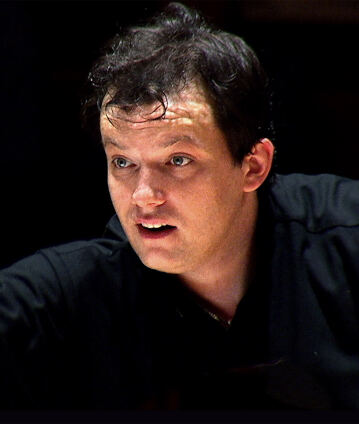Andris Nelsons conducts sumptuous works of the 20th century

In this ingenious programme, Andris Nelsons presents composers from the early 20th century who were creatively and innovatively inspired by music of the past – such as Gregorian chant, revitalised by Hans Pfitzner in his prelude to Palestrina, Baroque music in Heinrich Kaminski’s Dorian Music, and the Viennese waltz in Richard Strauss’s Der Rosenkavalier. Wolfgang Rihm’s Marsyas, in contrast, is thoroughly modern yet always melodious.
For the Berliner Morgenpost, it was a “sensational debut”, when Andris Nelsons performed in concert with the Berliner Philharmoniker for the first time last October. For his return, he put together an equally interesting and rich programme. It shows that the composers of the early 20th century were inspired not only by a faith in progress and modernity, but also looked to the past.
Hans Pfitzner’s Palestrina is, as the subject of the opera suggests, permeated by echoes of Gregorian chant, and is given a distinctive archaic flavour with its crashing fanfares, such as in the prelude to the second act. The main work of the first part of the concert is Heinrich Kaminski’s Dorian Music, written in 1933 and is likely to be known to only a few music fans. Kaminski, born in Germany in the Black Forest and trained in Berlin, creates an atmospheric work in which Baroque grace and late-Romantic sonorities form a successful synthesis.
Richard Strauss’s Der Rosenkavalier, on the other hand, evokes the world of Viennese rococo, without resorting to the music of that time. Velvety lines, unusual accents, now and then a waltz: these are the ingredients of the sometimes glittering, sometimes ironic scenes of the opera. Composed in 1999, Wolfgang Rihm’s Marsyas is the only work in this concert to find itself musically in its own time – a working of an ancient myth, an exciting interchange of free rhapsody and high drama. Two members of the Berliner Philharmonker are to be heard in the solo parts: Gábor Tarkövi, principal trumpet since 2005, and the percussionist Jan Schlichte who has been a member of the orchestra since 1998.
© 2011 Berlin Phil Media GmbH
Related interviews